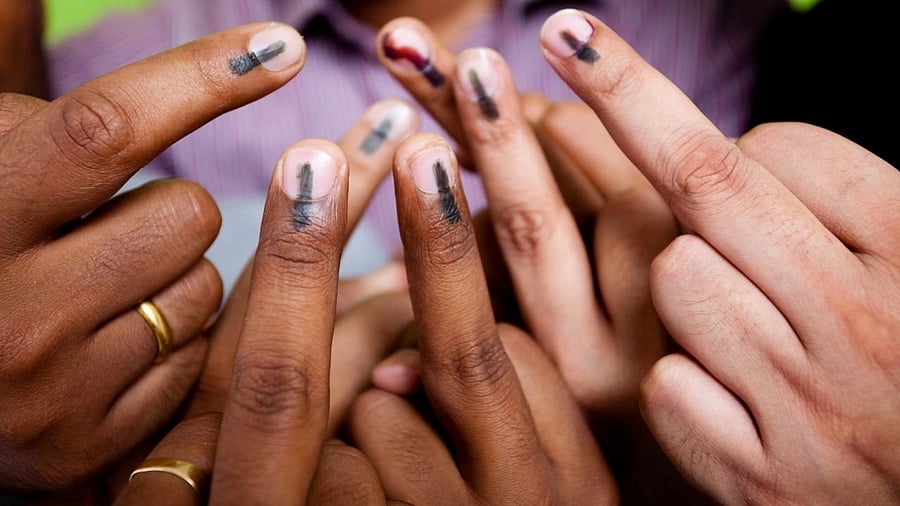
Representative image of voting.
Credit: iStock Photo
All eyes are on Delhi as the national capital heads to elections next month.
The 70-member Delhi Assembly is scheduled to go to polls on February 5 and the results are set to be declared on February 8.
Electors will vote based on universal adult franchise.
What is universal adult franchise?
According to Article 326 of the Indian Constitution, elections to the House of the People and the Legislative Assembly of each state are conducted based on universal adult suffrage.
This means that any individual who is a citizen of India and is at least 18 years old on the specified date, as determined by the appropriate legislative body, and who is not disqualified under the Constitution or any laws enacted by the appropriate legislature due to factors such as non-residence, unsoundness of mind, criminal activity, or engaging in corrupt or illegal practices, has the right to be registered as a voter for any such election.
All Indian citizens possess the right to vote without regard to their caste, religion, race, gender, or ethnicity.
History of Universal Adult Franchise in India
The call for universal adult suffrage gained momentum in India long before independence.
The Motilal Nehru report of 1928 was among the early advocates, supporting adult franchise and equal rights for women. Similarly, the resolution passed during the 1931 Karachi Session of the Indian National Congress emphasised that universal adult franchise was integral to achieving complete freedom or 'Purna Swaraj.'
On June 16, 1949, the drafting committee chairman introduced the provision for universal adult suffrage, marking a significant departure from colonial laws. This declaration paved the way for elections in India to be based on universal adult suffrage.
Initially, the minimum voting age was set at 21. However, the Sixty-First Amendment Act of 1989 brought about a change, lowering the voting age from 21 to 18.
